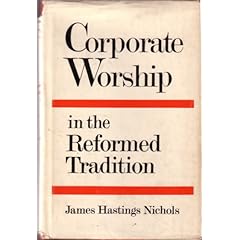First Post in Series
Second Post in Series
Third Post in Series
The Great Commission tells Christians to persuade people to become disciples of Jesus and train them to obey everything that Jesus commands because he has won all authority in Heaven and on Earth. Yet somehow we are supposed to believe that God wants some kind of minority of Christians throughout world history and is content to allow the majority of the Human race to manage its own affairs independently. This brings out a weirdly paradoxical attitude in which “the world” is looked down upon as sinful and yet is also seen as having the ability to live without God or his son.
Would this view make any sense in Athens that served under a Roman Emperor who claimed to be divine and in which the city civic ceremonies were to other gods? Paul preached,
Being then God’s offspring, we ought not to think that the divine being is like gold or silver or stone, an image formed by the art and imagination of man. The times of ignorance God overlooked, but now he commands all people everywhere to repent, because he has fixed a day on which he will judge the world in righteousness by a man whom he has appointed; and of this he has given assurance to all by raising him from the dead.
No one could have possibly heard in this a call for people to have a new private religious experience. Paul was talking to the residents of a city named after one of those imaginary divinities. He was calling Athens to become Christopolis.
So we see the same in Ephesus where, though the city is not named for Artemis, she is still the civic deity:
About that time there arose no little disturbance concerning the Way. For a man named Demetrius, a silversmith, who made silver shrines of Artemis, brought no little business to the craftsmen. These he gathered together, with the workmen in similar trades, and said, “Men, you know that from this business we have our wealth. And you see and hear that not only in Ephesus but in almost all of Asia this Paul has persuaded and turned away a great many people, saying that gods made with hands are not gods. And there is danger not only that this trade of ours may come into disrepute but also that the temple of the great goddess Artemis may be counted as nothing, and that she may even be deposed from her magnificence, she whom all Asia and the world worship.” When they heard this they were enraged and were crying out, “Great is Artemis of the Ephesians!”
The consistent portrayal in Acts is that the Apostles are constantly in danger of a) being accused of treason for “acting against the decrees of Caesar, saying that there is another king, Jesus” and b) for disrupting the economy. One of those disruptions involved a slave girl who was demon possessed. While in the gospels this would be an “unclean spirit,” Luke uses a different description: she has a “spirit of divination,” or literallistically, a spirit of Pythia. This is a reference to the spiritualist center of the Classical Roman world. “Pythian” means “Of or relating to Delphi, the temple of Apollo at Delphi, or its oracle.” Clearly, the way the healing power of the Gospel disrupted an economy of slavery and demonic possession is meant to be understood as the threat that Christianity represented to the entire Classical world.
It is worth noting that Paul not only preached against the idols in Athens, but preached in the synagogues because of the idols in Athens:
Now while Paul was waiting for them at Athens, his spirit was provoked within him as he saw that the city was full of idols. So he reasoned [1] in the synagogue with the Jews and the devout persons, and [2] in the marketplace every day with those who happened to be there.
Taking this sentence at face value, Paul saw the predominance of idolatry in the public square and in private to be a sign that something was lacking in the synagogue.
What seems to have happened is that there has been incomplete but widespread discipleship of the nations. Now that we have fallen into an era of unbelief, no one wants to credit Jesus with the things that work about he world. So we have been encouraged to believe that such culture is “natural” and “neutral” and properly belongs to an alleged “secular” space.
But this isn’t a rational perspective on the way the world really is. Jesus has made the difference and Jesus will do even more in the future. Jesus expects disciples to recruit other disciples personally, and to live as disciples in every aspect of life. The great abuses and misunderstandings that can result can never justify disregarding Jesus’ orders to those who claim to follow him.
If there was ever a time when God allowed human societies to exist apart from loyalty to him, that time is over. God now expects everyone to acknowledge the Lordship of His Son and to obey Him.
Fifth Post in Series
Sixth Post in Series
Seventh Post in Series
